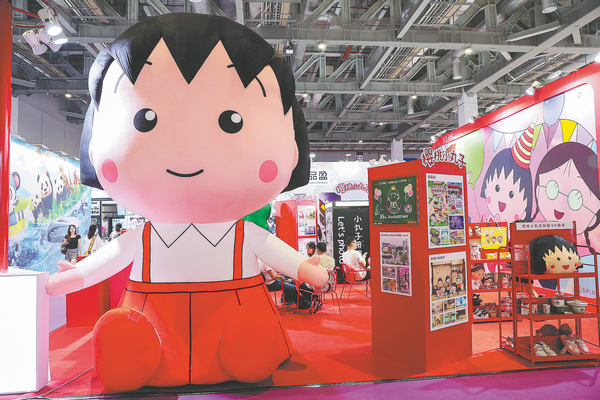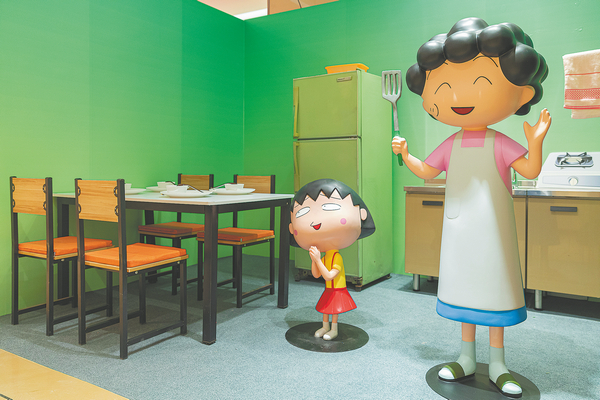

Soothing voice
In the studios, she saw at work the great You Hui Feng, the first Mandarin dubbing artist who lent her voice to the popular Japanese anime Chibi Maruko-chan. Chibi Marukochan is a curious schoolgirl who lives in a cozy town with her loving family and friends.
"While watching them dub for that anime, I couldn't even think of taking their place years later." It usually takes three to five years of hard work to complete the apprenticeship in the industry and start getting independent dubbing assignments, but Lin achieved that in less than two years.
When Feng got married and moved to Hong Kong, the studio had to find a replacement. "That's how I got the chance to dub for Chibi Maruko-chan."
"After working for a few years, I realized that the job was not just about bread and butter," she said, stressing that the popular characters she has dubbed for have given her "a lot of insight into life and intriguing experiences".
Once the head of a company invited Lin to speak on the voice-over industry, and most of the people in the audience were heads or senior managers of well-known companies. After she finished her speech, the company head walked up to her and said, "Ms Lin, your job is extremely significant." He told her that he was always neck deep in work, so after returning home, he watches Chibi Maruko-chan, because it is the best stress-reliever for him.
"When we are no longer on Earth, our voice will keep inspiring people and bring laughter to their lives," she said.
Lin often reads books, but she also likes audiobooks. "Audio content isn't just for kids; it benefits people of all age groups. It has a healing, curative effect, and brings sunshine to people under stress."

She also attends lectures to help juvenile delinquents, and children who have dropped out of school. "They might have been under stress or were really confused before breaking the law, or might have dropped out of school for family reasons," she said.
In her spare time, Lin loves going to the theater. Besides Taipei, Lin has spent a lot of time in Shanghai for work. Talking about the Chinese mainland's animation market, Lin said mainland productions have a lot of original elements and "materials that I really like". Mainland animations "are a cultural blend of the East and the West, and the style inspires me a lot when dubbing, because they are not completely Western-style stuff".
Working with dubbing artists from the mainland, Lin felt that she clicked with them. "They are also involved in other kinds of acting jobs or have their own hobbies and interests." This gives her more things to talk about with them. "For example, we also discuss about producing short videos together."
Before the turn of the century, foreign films and TV productions dubbed by voice artists on the island became hugely popular on the mainland and influenced a couple of generations.
Lin still gets work offers from mainland producers, "but not as many as before". But her "voice-over for some classic characters are still very popular (on the mainland)," she said.